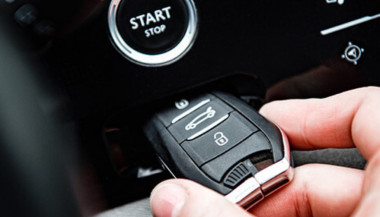How to Spot a Car Key Cloning Scam: Warning Signs and Prevention Tips
Car theft doesn’t always involve smashing windows or forced ignition anymore. These days, all it might take is a thief standing a few feet away from you — equipped with a small electronic device and a plan to clone your car key without ever touching it.
Welcome to the age of car key cloning. Fast, silent, and nearly untraceable, this high-tech method of theft is on the rise, and many drivers don’t even know it exists. In this article, we’ll walk you through how it works, what red flags to watch for, and how to protect yourself from becoming the next victim.
What Is Car Key Cloning and How Does It Work?
Car key cloning is the process of copying the signal emitted by your key fob and using that signal to unlock and even start your car. Thieves use tools like signal amplifiers, cloning software, or plug-in programming devices to mimic the electronic code stored in your key.
In most cases, they don’t even need to touch your key. They just need to be close enough — in a parking lot, next to your front door, or even in a restaurant — to intercept the signal when you lock or unlock your car. That signal is then copied and stored on another device or blank key fob.
In some instances, criminals will break into your car and access the OBD port (the vehicle’s diagnostic system) to directly program a new key.
This means they can drive off in your car with a cloned key, and you may not even know how they got in.
Why This Scam Is Spreading So Quickly
Key cloning was once limited to high-end criminal operations, but now the tools are cheap, easy to find, and widely available online. Some fob cloning devices are openly sold on marketplaces, making it simple for even low-level criminals to learn the trade.
A cloned key leaves no trace of forced entry, no damage, and often no evidence — making it harder for insurance claims to be validated and for stolen cars to be recovered.
The rise in keyless entry systems means millions of drivers are potential targets, whether they realize it or not.
According to The Sun, cloning devices sold online can program new keys in under 30 minutes.
5 Warning Signs You May Be Targeted
Strange behavior from your key fob – If the range suddenly becomes shorter or the buttons stop responding consistently, your signal may have been intercepted.
Unfamiliar devices or people near your car – Be cautious if you see people lingering nearby with phone-like devices or bags near your car.
Your car unlocks by itself – This could mean someone nearby is mimicking your key’s signal.
You find marks or loose panels near the OBD port – Some thieves break in to plug in programming devices.
You lose access to your spare key – It’s possible a third key was added to your system, locking the others out.
How to Prevent Car Key Cloning
While key cloning can be hard to detect, it's relatively easy to prevent if you're proactive. Here’s how to stay protected:
Use a Faraday pouch: These small, signal-blocking cases prevent your key’s signal from being intercepted when not in use.
Don’t store keys near doors or windows: Keep your keys at least 5–10 meters from exterior walls.
Disable keyless entry if possible: Some vehicles allow you to turn off proximity unlocking in the settings.
Invest in physical security: Steering wheel locks, OBD port locks, and even wheel clamps act as strong deterrents.
Audit your key system: A locksmith can check how many keys are programmed to your vehicle and delete unauthorized ones.
If you're ever in doubt, replace your key and reprogram your system. It may cost a bit up front, but it's cheaper than replacing a stolen car.
Need a secure replacement key or a Faraday pouch? Browse our car key and accessories collection for trusted, secure options.
Know the Risk, Beat the Scam
Car key cloning scams are evolving — and fast. The combination of wireless technology, smart cars, and openly available tools has created the perfect storm for high-tech theft. But with a little awareness and some simple precautions, you can stay one step ahead.
Don’t wait until it happens to you. Know the signs, protect your keys, and take action now — because in a world of silent theft, what you don’t see can hurt you.

_1746017111.jpg)
 (1)_1747918716.jpg)

_1736339090.jpg)
 (1)_1736339630.jpg)